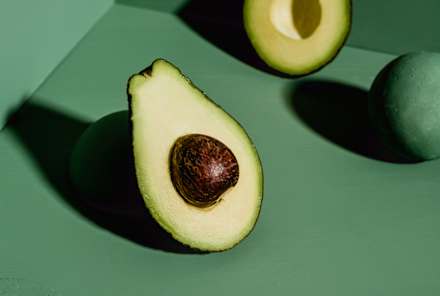Advertisement
Could Coffee Be Bad For Your Adrenal Health?


We’ve all heard the hype about how bad coffee is for our bodies and how we all need to cut back. We've also all heard coffee praised as a natural drink that benefits our digestive system and other parts of our body. So what's a person to do? I love my coffee and I'm often stuck in a tailspin regarding whether or not it's good for me, all while gripping a mug in my right hand full of delicious cafe delight.
My journey with coffee, caffeine, and stress.
Coffee used to be an obsession for me: The morning mug, an afternoon pick-me-up, and the post-dinner perk to get me through my evening work routine. That was all before I realized the chronic stress load that my body fought against daily, which was not at all supported by the steady drip of caffeine that I supplemented with during my waking hours. And therein lies our problem: It isn’t necessarily the coffee that's the problem but the caffeine—one of the most commonly used stimulants in the world.
That said, not everyone suffers from a daily onslaught of chronic stress, and caffeine tends to affect each individual differently. So it becomes an individual issue that we have to decipher for ourselves and with the help of our trusted health care providers. For me, eliminating coffee was a godsend because the amount of caffeine was pumping into my body daily, coupled with chronic high stress levels and a variety of other destructive habits, left my body in a perpetual state of fight or flight. When I finally revitalized my life with a foundation of healthy nutrition, stress management, regular exercise, and restful sleep—while reducing the toxic load in my body and environment—I found that I didn’t need the coffee to function anymore. I left coffee behind for green smoothies, water infusions, and essential oils that naturally boosted my energy and supported my mental concentration and alertness.
The adrenal fatigue–coffee connection you should know about.
While some argue that the term “adrenal fatigue” is not yet a diagnosable condition, the persistence of chronic cortisol levels found in patients shows that this issue does exist and is a serious problem well-recognized by those who practice holistic, functional, or integrative medicine medicine. When the adrenal glands are constantly plagued by perceived stressors in our environment, they cause raging, unrelenting levels of cortisol in our bodies that create a domino effect of symptoms and issues. Our bodies perceive a constant state of danger, throwing us into full-fledged fight-or-flight mode, which shuts down our nonessential systems—namely the digestive and reproductive systems—in favor of basic survival. Chronic levels of stress cause our body to go into a survival state, where we maintain our guard at all times, even when the stress may be just a commercial reminding us we haven’t planned for retirement. When cortisol levels remain high, emotional reasoning makes us panic about even the smallest things in life.
So does coffee cause adrenal fatigue? No. But chronic stress does. Does coffee add to the chronic stress issues in a survival-mode-driven person? It did for me, and I think it does for a lot of other people too—just not for everyone.
Confused yet? The reasoning behind these assertions lies in the simple fact that we are individuals with different makeups. What affects one person in a certain way doesn’t necessarily mean an identical reaction in another. And coffee affects people differently. I’m sure that you’ve noticed how a single cup of coffee may make one person amped with energy to the point of jitters while another person may drink cup after cup and still be able to fall asleep at any moment.

A LOT of different factors determine how you'll respond to caffeine.
In general, caffeine prevents the neurotransmitter adenosine from telling your body that you are tired, but your brain also has the ability to anticipate when these effects are coming. If you are a habitual coffee drinker, supplying your body with smooth roasted goodness at the same times each day, your body knows it’s coming and prepares to counteract the effects. Even the smell of coffee or the sound of the coffee maker can trigger your body’s regulating response.
This conditioning happens with many things in our lives as our bodies become used to routines and rituals. While these can be incredibly beneficial in regulating your body’s natural responses to help lower stress levels or prepare your mind and body for sleep, it can also be detrimental when dealing with harmful substances such as drugs or alcohol. That said, habitual coffee drinkers seem to experience less of a response to the caffeine than do those who don’t consume it regularly because their bodies haven’t adjusted.
Sensitivity to caffeine depends on the person, their makeup, their age, their BMI, how often they consume caffeine, how stressed they are to begin with, when and how they consume caffeine, how their diet is balanced, if they get enough sleep, and what medications they take. The list goes on and on and on! Even the type of bean or roast of your coffee affects caffeine levels! Individual genetic makeup can dictate the effect it has on your system and how you metabolize it, but caffeine will generally increase blood pressure, which may cause issues if you already have a heart condition and could exacerbate cardiovascular disorders. It can also cause withdrawal symptoms when consumed in large amounts and then you try to cut back, leading to headaches, digestive upset, jitters, and other symptoms as the body works to readjust without the steady supply.
Coffee can be considered a health food—in some cases.
Coffee by itself has shown some amazing health benefits, such as lowering the risk for chronic diseases and cancers, reducing risk of suicide, and lowering your chance of developing a brain-related disease such as Alzheimer’s and dementia. Consumed in lower doses, it can give your body a boost of energy and motivation without the side effects of headaches or insomnia. The problem comes when you are already chronically stressed and you add highly caffeinated coffee to the mix; for many people, this only adds to your elevated cortisol levels.
Suggested caffeine consumption per day for adults is 300 to 400 mg, or about three to four cups, but, if you're in the group of people who don’t tolerate caffeine well, I recommend less. What are the other alternatives? Drinking water infusions with citrus and mint will give your body a natural boost of energy without any harmful side effects. Or, one of my personal favorites is matcha green tea made from the entire leaf rather than just herbs brewed in water. Easily added to green smoothies, it contains high levels of antioxidants, vitamins, minerals, and amino acids, as well as healthy levels of caffeine for your body. In addition, it contains L-theanine, which helps to reduce stress levels in the body while boosting memory and concentration.
The truth about coffee and adrenal fatigue is that it really depends on the person. Good news? Maybe, but be sure to take the time to listen to your body and see what it's trying to tell you. Taking a break from coffee or caffeine can be a great idea, especially when there are other alternatives available. And if you're already living a healthy lifestyle with no major issues with chronic stress, coffee probably won’t be your downfall.


















